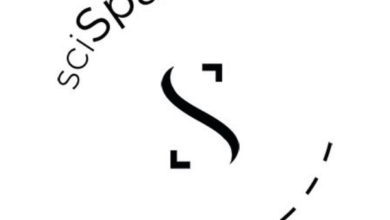Threat of US tariffs hangs over Sun Pharma’s specialty business

Sun Pharmaceutical Industries Ltd expects a limited impact from the US government’s most favoured nation (MFN) drug pricing directive, management told analysts at a meeting last week. The directive requires US agencies to ensure that the price of a prescription drug in the US is no higher than its lowest price in other developed countries. Sun faces low MFN risk thanks to its focus on specialty products, which have limited exposure to Medicaid, the US health insurance program that covers individuals and families with low income and resources.
The US market contributed 31% of Sun’s consolidated FY25 revenue of ₹52,000 crore, mainly from innovative medicines and the specialty business. The specialty business includes products in dermatology, ophthalmology and oncodermatology, and is growing faster than the overall business. Over FY21-25, Sun Pharma’s consolidated revenue increased at a 9.2% compound annual growth rate (CAGR) while revenue from the speciality business clocked a 26% CAGR, aided primarily by the US and new launches. Specialty revenue comprised 20% of Sun Pharma’s total revenue in FY25, up from 11% in FY21.
A recent key launch was Leqselvi, used for the treatment of severe alopecia areata. The drug has been received well, with Sun achieving parity in terms of payor coverage. Payor coverage refers to an agreement with insurance companies to cover the cost of a specific treatment. The company is also preparing to launch Unloxcyt, used to treat Metastatic cSCC, a type of skin cancer, by the March quarter (Q4FY26). Sun already has products for skin cancer, which should help it market Unloxcyt effectively.
Back in India, it’s preparing to be an early mover in anti-obesity drugs with the launch of a generic version of Semaglutide by March, once the patent expires. ICICI Securities said Sun has launched about 165 brands in India in the past five years. It expects Sun’s global specialty portfolio to decelerate, with growth dropping to a 20% CAGR over FY25-28, against 22% over FY22-25. The India business is expected to grow at a 10.7% CAGR over FY25-28, a slight improvement from 9.7% over FY22-25.
Sun Pharma’s overall earnings growth could be slower in FY26 as its effective tax rate will increase to 25% from 20% in FY25 because of the end of various tax exemptions. A Bloomberg consensus estimates FY26 earnings-per-share growth at 6.3%, far lower than 18.8% in FY25, adjusted for various provisions.
Tariff cloud
The US’s 50% tariff on Indian imports brings significant uncertainty for the company. While pharma is currently exempted, the sector is under investigation to determine if its imports threaten US national security, and could face tariffs depending on the outcome. Sun’s management expects generic pharma products to retain their exemption. The specialty business may face higher tariffs, but the company’s manufacturing presence across geographies should help preserve its US market revenue. For now, it has no plans to increase its manufacturing footprint in the US, though it will look to manufacture more products in existing US facilities, management said.
Meanwhile, the company continues to face regulatory issues. Its Halol plant failed to meet regulatory requirements in the most recent inspection in June. This plant was placed under ‘import alert’ by the US Food and Drug Administration in December 2022, forcing Sun Pharma to transfer manufacturing for the US market to its Baska facility.
Amid these various uncertainties, Sun Pharma’s shares have fallen over 13% so far in 2025, more than the Nifty Pharma index’s 5% drop. The resolution of US trade uncertainties are crucial to the stock’s trajectory from here.
Credit: Source link






